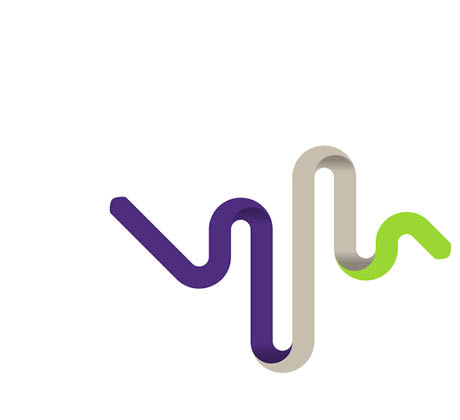-
Aviation Advisory
Our dedicated Aviation Advisory team bring best-in-class expertise across modelling, lease management, financial accounting and transaction execution as well as technical services completed by certified engineers.
-
Consulting
Our Consulting team guarantees quick turnarounds, lower partner-to-staff ratio than most and superior results delivered on a range of services.
-
Business Risk Services
Our Business Risk Services team deliver practical and pragmatic solutions that support clients in growing and protecting the inherent value of their businesses.
-
Deal Advisory
Our experienced Deal Advisory team has provided a range of transaction, valuation, deal advisory and restructuring services to clients for the past two decades.
-
Forensic Accounting
Our Forensic and Investigation Services team have targeted solutions to solve difficult challenges - making the difference between finding the truth or being left in the dark.
-
Financial Accounting and Advisory
Our FAAS team designs and implements creative solutions for organisations expanding into new markets or undertaking functional financial transformations.
-
Restructuring
Grant Thornton is Ireland’s leading provider of insolvency and corporate recovery solutions.
-
Risk Advisory
Our Risk Advisory team delivers innovative solutions and strategic insights for the Financial Services sector, addressing disruptive forces, regulatory changes, and emerging trends to enhance risk management and foster competitive advantage.
-
Sustainability Advisory
Our Sustainability Advisory team works with clients to accelerate their sustainability journey through innovative and pragmatic solutions.

-
 Asset management Asset management of the futureIn today’s global asset management landscape, there is an almost constant onslaught of change and complexity. To combat such complex change, asset managers need a consolidated approach. Read our publication and find out more about what you can achieve by choosing to work with us.
Asset management Asset management of the futureIn today’s global asset management landscape, there is an almost constant onslaught of change and complexity. To combat such complex change, asset managers need a consolidated approach. Read our publication and find out more about what you can achieve by choosing to work with us. -
 Internal Audit Maintaining Compliance with New EU Pension Directive IORP IIOn 28 April 2021, the Irish Government transposed IORP II (Institution for Occupational Retirement Provision), an EU directive on the activities and supervision of pension schemes, into law.
Internal Audit Maintaining Compliance with New EU Pension Directive IORP IIOn 28 April 2021, the Irish Government transposed IORP II (Institution for Occupational Retirement Provision), an EU directive on the activities and supervision of pension schemes, into law. -
 Risk, Compliance and Professional Standards FRED 82 – Periodic Updates to FRS 100 – 105The concept of a new suite of standards for the UK and Ireland, aligning with international financial reporting standards, was first conceived in 2002
Risk, Compliance and Professional Standards FRED 82 – Periodic Updates to FRS 100 – 105The concept of a new suite of standards for the UK and Ireland, aligning with international financial reporting standards, was first conceived in 2002 -
 Audit and Assurance Auditor transition: how to achieve a smooth changeoverAppointing new auditors may seem like a daunting task that will be disruptive to your business and a drain on the finance function. Nevertheless, there are a multitude of reasons to consider a change, including simply seeking a ‘fresh look’ at the business.
Audit and Assurance Auditor transition: how to achieve a smooth changeoverAppointing new auditors may seem like a daunting task that will be disruptive to your business and a drain on the finance function. Nevertheless, there are a multitude of reasons to consider a change, including simply seeking a ‘fresh look’ at the business.
-
Corporate Tax
Our Corporate Tax team is made up of more than 40 highly experienced senior partners and directors who work directly with a wide range of domestic and international clients; covering Corporation Tax, Company Secretarial, Employer Solutions, Global Mobility and Tax Incentives.
-
Financial Services Tax
The Grant Thornton team is made up of experts who are fully up to date in terms of changing and evolving tax legislation. This is combined with industry expertise and an in-depth knowledge of the evolving financial services regulatory landscape.
-
International Tax
We develop close relationships with clients in order to gain a deep understanding of their businesses to ensure they make the right operational decisions. The wrong decision on how a company sells into a new market or establishes a new subsidiary can have major tax implications.
-
Private Client
Grant Thornton’s Private Client Services team can advise you on all areas of financial, pension, investment, succession and inheritance planning. We understand that each individual’s circumstances are different to the next and we tailor our services to suit your specific needs.
-
VAT
Grant Thornton’s team of indirect tax specialists helps a range of clients across a variety of sectors including pharmaceuticals, financial services, construction and property and food to navigate these complexities.

The Revenue have updated their guidelines on e-working and the treatment of associated expenses. The updates are limited and broadly in line with previous guidance on e-working but do provide some clarity around what is considered e-working for “substantial periods” and the availability of the reliefs in the current environment. This relates to the concept of e-workers/home workers.
E-working is the method of working using information and communication technologies where an employee’s work is carried out independent of location.
Revenue has defined e-working to be where an employee works:
- at home on a full or part-time basis
- part of the time at home and the remainder in the normal place of work
- while on the move, with visits to the normal place of work
The guidance goes on to state that e-working involves:
- working for substantial periods outside the normal place of work
- logging onto a work computer remotely
- sending and receiving email, data or files remotely
- developing ideas, products and services remotely
The guidance previously did not clarify what Revenue considers to be “substantial periods” and they have now updated this for circumstances which we now find ourselves in, with a large portion of the workforce now working remotely for public health reasons by adding the following to their guidance.
“Where the Government recommends that employers allow employees to work from home to support national public health objectives, as in the case of Covid-19, the employer may pay the employee up to €3.20 per day to cover the additional costs of working from home. If the employer does not make this payment, the employee may be entitled to make a claim under section 114 TCA 1997 in respect of vouched expenses incurred wholly, exclusively and necessarily in the performance of the duties of the employment”.
In board terms this will permit employees forced to work from home due to the Covid crises we currently find ourselves in, to claim for a tax credit. The below is the specific example which the Revenue have outlined in their guidance.
e-Working calculation for claim by employee
The example below outlines the approach for employees claiming relief for allowable e-working expenses, i.e. expenses that are incurred wholly, exclusively and necessarily in the performance of the duties of their employment.
Eve works 180 days in total during the year, and 90 of these days are from home.
The annual amount paid on allowable utility bills (heating and electricity) is €1,750:
The portion of utility bills that applies to e-working days is:
Allowable utility bills x No. of e-working days
365 days
€1,750 X 90 = €432
365
This amount (€432) should then be apportioned between use for employment purposes and private use.
Revenue are willing to accept that the average proportion of the house attributable to a home office is 10%. Therefore, in this example the amount of e-working expenses that would be “allowable deductions incurred in employment” is €432 X 10% = €43.00 (this is the e-working expense amount due).
Method of claiming e-Working expenses
e-Working expenses can be claimed by completing an Income Tax return. An individual can complete this form on the Revenue website as follows:
- sign into myAccount;
- click on ‘Review your tax’ link in PAYE Services;
- select the Income Tax return for the relevant tax year;
- in the ‘Claim for Tax Credits, allowances and Reliefs’ page select ‘Allowable Deductions incurred in Employment’ and insert the amount of expense at the “Amount” section.
As a claim may be selected for future examination, all documentation relating to a claim should be retained for a period of six years from the end of the tax year to which the claim relates.
Here is a link to the fully recently published guidance on the Revenues website: Revenue.ie - Tax Professionals [242 KB]
If you would like further details on the supports to date or have specific client queries please do not hesitate to contact us.

















